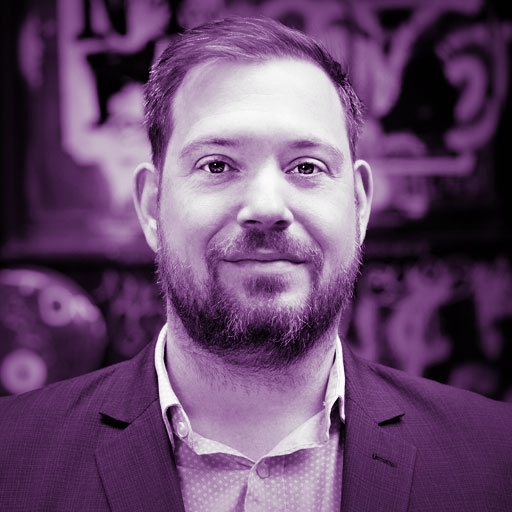Episode 70: #NIAW: Pregnantish to Mom: Andrea Syrtash
In honor of this year’s National Infertility Awareness Week (4/19 – 4/25), we’re doing a five-part series that highlights Resolve’s theme of ‘Changing the Conversation’. Over the past two years we’ve had conversations with people still experiencing infertility, people who have reached their end goals, people who’ve dedicated their lives to helping others, and people who are just entering this ever-expanding world of infertility.
We’re focusing these episodes on change, how our guests have changed since we last visited them, how their priorities have changed, and how their situation has changed. We hope by doing so we can do our small part to help change the conversation and enhance public understanding that infertility needs attention and to ensure others they aren’t alone in this journey.
In today’s episode, we get an update from Andrea Syrtash, founder of Pregnantish and guest from season one, to hear about what has changed in her life since she started to explore surrogacy. We’ll also hear about how she’s using her platform to build an infertility community, how she handled (spoiler alert) her pregnancy announcement, and what’s next for Pregnantish.
Guest: Andrea Syrtash, Founder & Editor-in-chief of Pregnantish
Host: Dan Bulger, Producer at Progyny
Be sure to check out Andrea’s previous episode – Season 1, Episode 10 and to read the story in People mentioned in this episode, see here.
For more information visit Progyny’s Podcast page, Pregnantish, and Progyny’s Education page for more resources on emotional support and awareness.
Be sure to follow us on Instagram, @ThisisInfertilityPodcast and use the #ThisisInfertility.
Have a question, comment, or want to share your story? Email us at thisisinfertility@progyny.com.
Here are some highlights from this episode:
Gestational Surrogacy
4:23 – 6:16
Andrea Syrtash: Last time I was here, I was in the process of exploring surrogacy with a gestational carrier, which means a wonderful person volunteers to carry my genetic embryo in her body. When we last spoke, two carriers had dropped out and my first cousin had actually just offered to carry. We were beginning the initial medical testing, and all the other legal documents that go along with a gestational carrier.
Dan Bulger: So, Andrea’s seven-year journey has taken her to explore gestational surrogacy, which is a wonderful option for many. There are countless reasons someone might pursue surrogacy to have a baby. And the science is fairly straightforward. But the surrogacy process overall can get quite complex.
Andrea Syrtash: What many people don’t realize about surrogacy, in general, is how complicated and how many months it takes and how much paper, legal, and medical counseling you have to go through as a lead up.
The Sensitivities Around a Pregnancy Announcement
6:30 – 8:34
Dan Bulger: Andrea couldn’t keep the news from those who have followed her story all these years. But she also knew that making a pregnancy announcement wasn’t something that she should take lightly.
Andrea Syrtash: I was incredibly aware of our community at Pregnantish and many of them are still struggling to have a baby. And I didn’t want to have them find out from someone else because I’m in the media. I needed to tell our audience first, because I care deeply about them, but I knew it may be painful, so I put a lot of thought into how I shared it. The announcement was met with mixed results, and I totally get it, I’m not offended by the feelings and I understand them deeply. Moving forward, I decided not to post photos of my baby on Pregnantish, only on my personal page. Pregnantish is not about me. We have over 50 contributors. We are the voice of today’s patient. We’re a storytelling platform. And it’s not just about my story. So that’s why I don’t share it there so much.
“Infertile”, Even After Becoming a Parent
12:54 – 13:42
Dan Bulger: Another thing that Andrea is acutely aware of is a painful reality. Yes, she’s finally met her daughter, but she’s still infertile.
Andrea Syrtash: I always hear people say, “Oh, you’ve beaten infertility, you’re on the other side,” and I correct them. And I say, “Well, you know, I’m still infertile, I still don’t have a uterus that can carry a pregnancy to term.” I have another genetically embryo frozen that maybe we’d want to use, but it cannot be in my body, still have a physical block, I still have the disease of infertility. I appreciate what they’re saying – I’m on the other side because I’m not a patient, but I still very much identify with this audience and still very much know I have infertility.

Host
Dan has been in the healthcare industry for the last six years as a multimedia content producer. Better known as ‘Video Dan’ he as interviewed numerous doctors, patients and other experts in the world of fertility. He’s also the producer for this podcast, This is Infertility. On a personal note Dan’s parents started fostering kids when he was four years old, and he considers himself a proud older brother to over 100 foster children.

Guest
Andrea is a Relationship Expert and the Founder of pregnantish.com, the first media site exclusively dedicated to helping singles, couples & LGBT navigate fertility treatments and infertility. A regular on-air personality, Andrea’s hosted television shows for Oprah’s OWN and Fox; and regularly appears as a guest expert on TV and radio shows across the country. She’s the author of popular books including, He’s Just Not Your Type (And That’s a Good Thing) and Cheat On Your Husband (With Your Husband). Andrea frequently speaks about how to improve relationships, most recently at the TEDx ‘Makers’ Conference. She is committed to breaking the taboo of infertility, and elevating the conversation about what it takes to start a family for millions of people today. Follow her @andreainny, www.andreasyrtash.com and find more @pregnantish.
Music From This Episode:
Artist: Lee Rosevere
Track: In A Moment
URL: https://freemusicarchive.org/
Track: Small Steps
URL: https://freemusicarchive.org/
Track: The Secret to Growing Up
URL: https://freemusicarchive.org/
Track: Completely Lost
URL: https://freemusicarchive.org/
Track: I Thought of Pills
URL: https://freemusicarchive.org/
Track: Musical Mathematics
URL: https://freemusicarchive.org/
Track: Not My Problem
URL: https://freemusicarchive.org/



